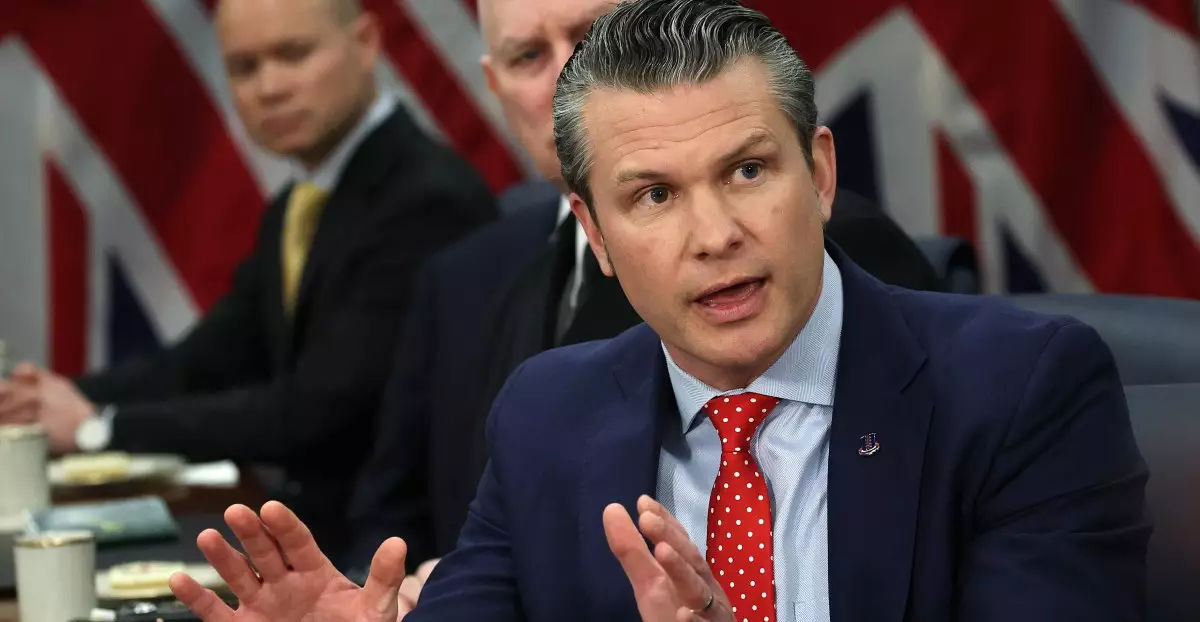In a world where the intersection of technology and communication continues to advance rapidly, it is alarming to witness a significant breach of protocol involving high-ranking government officials. The “Houthi PC Small Group” chat incident has raised serious questions about the adequacy of security measures taken by members of the Trump administration while discussing sensitive military operations. The implications of such casual communication can be dangerous, with a prime example being the unintentional inclusion of The Atlantic’s editor-in-chief, Jeffrey Goldberg, in this covert conversation.
Goldberg’s accidental addition to a group chat intended for planning military strikes against Houthi positions in Yemen underscores a troubling reality: sensitive discussions are often conducted with a cavalier attitude towards security. It is baffling that veterans of national security would rely on a consumer messaging app like Signal—a platform primarily designed for private conversations among individuals—to discuss operational details. This scenario illustrates the inherent risks of digital communication in an era dependent on technology, posing threats that go beyond the immediate security measures in place.
Missteps in Military Communication
The presence of a civilian journalist in a military operations chat is nothing short of a debacle. The implications extend far beyond the embarrassment of being unexpectedly privy to government plans. When discussing military actions, particularly those involving airstrikes, the need for strict confidentiality is paramount. This particular chat was not merely a friendly exchange but a discussion relating to the lives and fates of countless individuals. Yet, here was a group of senior officials, including Vice President JD Vance and Defense Secretary Pete Hegseth, seemingly oblivious to the glaring flaw in their operational security.
Furthermore, the aftermath revealed an unsettling camaraderie among officials as they sent celebratory emojis in response to the launch of the airstrikes. Such reactions pose ethical questions: how do military leaders balance national interests with a lighthearted approach to the destruction they might unleash? The juxtaposition of military strategy and social gestures—in this case, emojis—creates a disturbing notion of trivialization, suggesting that serious matters are reduced to mere digital symbols.
Weaknesses in National Security Protocols
The incident further highlights a broader concern regarding national security protocols. Experts and legal analysts have criticized the use of unauthorized platforms for discussing classified information. Relying on consumer-grade technology to facilitate discussions on military operations drastically undermines national security. By venturing outside official communication channels, officials expose themselves and their missions to unnecessary risks.
Moreover, it raises questions about the competence of senior officials in adhering to established protocols designed to protect sensitive military information. If highly placed individuals can disregard security measures so casually, what does this say about the effectiveness of training and supervision within the government? The successful maneuver of military operations is underpinned by disciplined adherence to security protocols, and this incident serves as an alarming reminder of what happens when procedures falter.
The Lasting Implications of Careless Communications
Beyond the immediate fallout, this incident carries lasting implications for how military operations are planned and executed. The potential for critical information leaks increases in a climate where officials fail to recognize the importance of secure communication. If mismanagement continues unchecked, it could severely impact not just operational success but also the safety of personnel involved.
Officials may need to reevaluate their reliance on popular messaging platforms while considering the ramifications of any communication—casual or serious. The stakes are excessively high, and this odd and unsettling incident should serve as a clarion call for a revival of respect for protocols in communication, ultimately ensuring that sensitive military operations are adequately safeguarded from careless behaviors and unintentional leaks.

